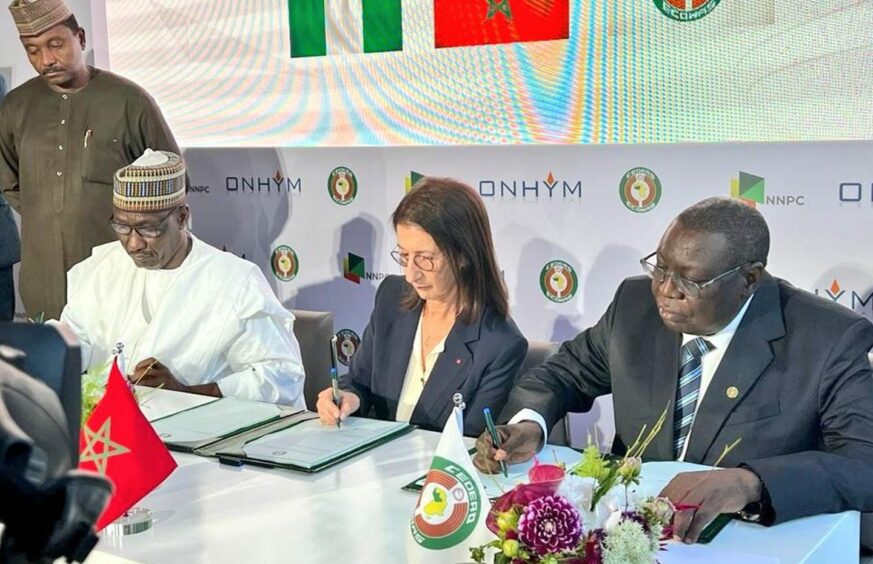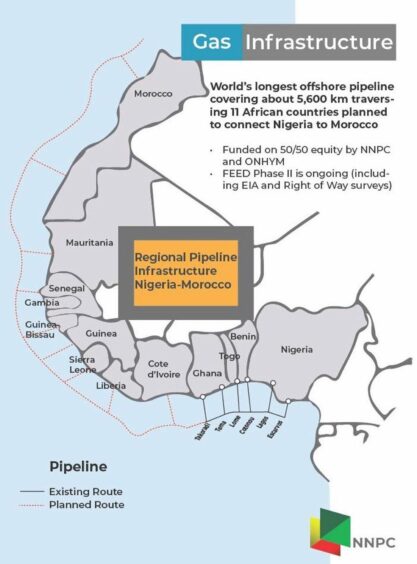 © Supplied by NNPC
© Supplied by NNPC Nigeria and Morocco have signed more agreements on a proposed major offshore gas pipeline, bringing Senegal and Mauritania on board.
Nigerian National Petroleum Corp. (NNPC) and Office National des Hydrocarbures et des Mines (ONHYM) signed three agreements. These were with Economic Community of West African States(ECOWAS), Petrosen and Societe Mauritanienne des Hydrocarbures (SMHPM).
A planned 48-inch pipeline will run from Brass Island in Nigeria to Dakhla, in Morocco, a distance of 5,300 km. There it will come onshore and link up to the Gazoduc Maghreb Europe (GME), which used to transport Algerian gas into Spain. The pipeline’s total length will be more than 7,000 km and involve 13 compressor stations.
It will carry 3 billion cubic feet per day of gas.
NNPC head Mele Kyari said the Nigeria-Morocco Gas Pipeline (NMGP) project would provide substantial benefits to those involved.
“Some of the benefits include creation of wealth and improvement in standard of living, integration of the economies within the region, mitigation against desertification and other benefits that will accrue as a result of reduction in carbon emission,” he said.
NNPC will oversee the supply of gas and secure the land required for the first compressor station in Nigeria.
“On behalf of the Federal Government of Nigeria, I would like to thank you all as we continue to strengthen our partnership for the benefit of our countries.”
The NMGP will allow Nigeria to cash in on its gas resources, NNPC said, diversifying export routes and cutting gas flaring.
Uphill task
While there is notable political support for the project, execution is challenging. The West African Gas Pipeline (WAGP), which runs from Nigeria to Ghana, has had a number of difficulties in providing throughput.
Transit states would benefit from increased access to gas but the size of the project will likely require high prices. As such, much will depend on European gas demand after 2030, when the NMGP may be completed.
Othmane Anice, writing for the Centre for Energy, Petroleum and Mineral Law and Policy (CEPMLP) in June, suggested a smaller pipeline would face improved chances. There is a “bigger chance that we see a gas pipeline between Senegal, Mauritania and southern Morocco”, he said.
Morocco is clearly eager to secure more gas. Energy Transition Minister Leila Benali has talked recently of the country’s efforts to sign longer term LNG deals. Morocco has imported LNG via the GME link from Spain.

